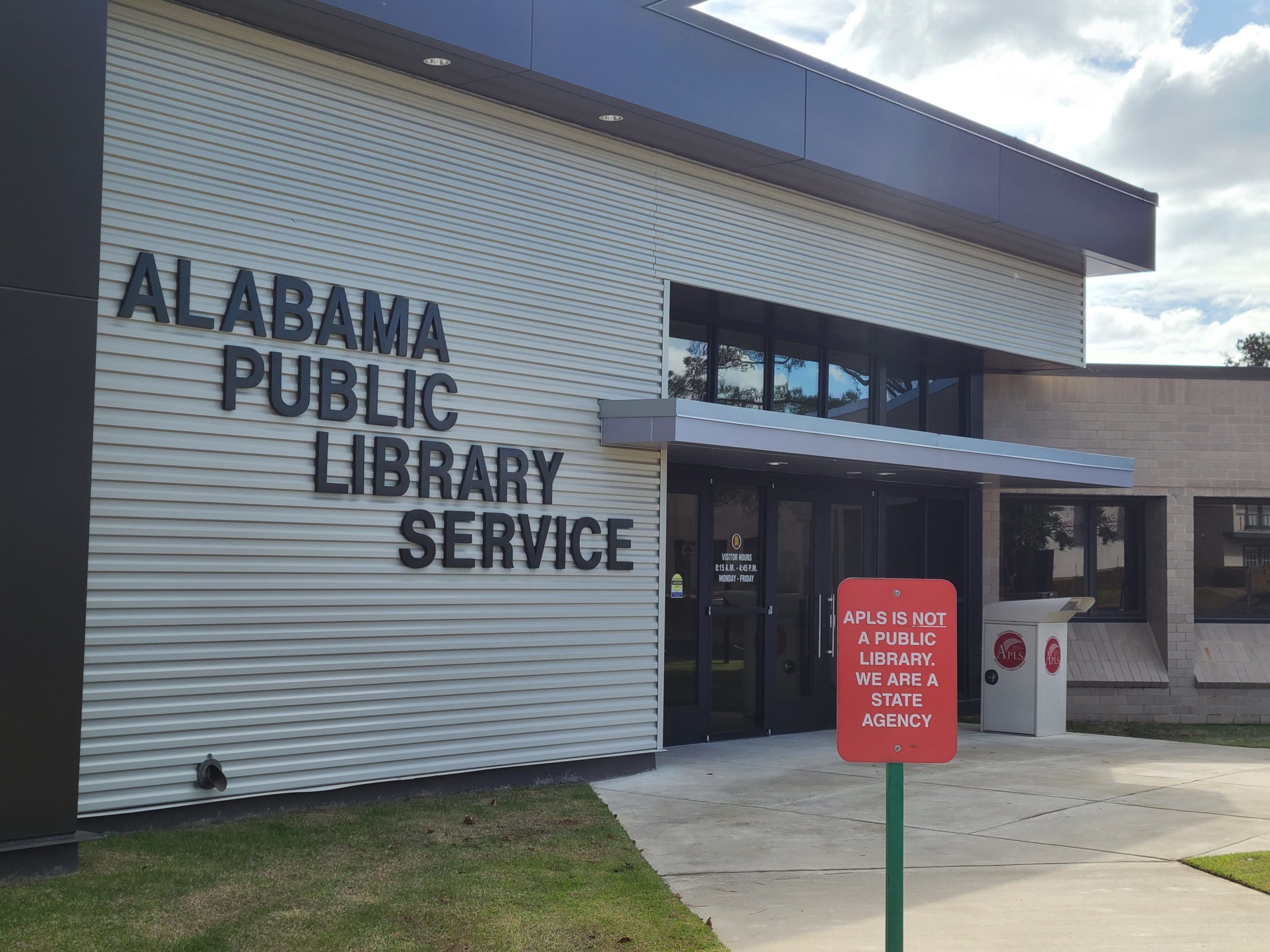Inside the blistering battle over Alabama libraries: ‘Burn the freaking books’
After opening in prayer at a church about 15 miles northwest of the state capital, panelists spoke of pornography in libraries, calling library board members cowards for not doing their jobs.
Then the leader of a political website remarked about book challenges in Alabama’s public libraries.
“Burn the freaking books,” said Bryan Dawson, the president of 1819 News, a website that publishes articles and conservative political commentary. “Burn them. I don’t care.”
The group behind many recent book challenges across the state is Clean Up Alabama, a nonprofit that first formed in Prattville, a city northwest of Montgomery. The group last fall hosted a forum titled “Fighting to End the Sexualization of Children in Libraries,” where Dawson suggested burning books that are included on Clean Up Alabama’s list of inappropriate books, a recording of the event shows.
Although suburban Prattville began as the epicenter of attacks on libraries in Alabama, the firestorm spread has spread, enveloping public meetings from north Alabama to the coast.
Alabama Public Library Service in Montgomery has hosted packed executive board meetings since book challenges popped up in 2023. Williesha Morris | [email protected]
And Clean Up Alabama’s message has caught the attention of some of the state’s top leaders.
Gov. Kay Ivey threatened to defund libraries that expose children to “inappropriate” materials. Months later, Steve Marshall, the attorney general of Alabama, affirmed that the state’s public library service can withhold funding from local libraries.
The state superintendent of education mandated that every school in Alabama implement a specific process for librarians to review which books are appropriate and offer a way for parents to voice their concerns.
The debate has even reached the State House as lawmakers debate two bills, including one that would make it easier to kick members off of library boards across the state.
Residents packed normally quiet library board meetings, as some critics accused professional librarians, many working with limited resources, of peddling pornography to kids. Some librarians told AL.com they felt they couldn’t speak freely in public for fear of losing their jobs over a situation they say is manufactured.
“Obviously the controversy surrounding book challenges and particularly some of the misinformation that’s part of that controversy has been very challenging,” said Chris Warren, director of the public library system in Houston County. “As someone who’s worked in libraries for 20 years, as someone who believes in libraries and the work that they do, I don’t want this controversy to detract from the amazing work that libraries do.”
At least nine Alabama libraries were embroiled in book challenges. A survey by the state library service found that residents challenged more than 100 books, questioning whether they should remain on library shelves. At least one library removed an LGBTQ book in the adult section from its shelves altogether.
Some librarians moved young adult books to the adult section, a move that qualifies as censorship, according to library advocacy organizations. One library in north Alabama even flagged a book for removal because the author’s last name is Gay.
Alabama is not alone. Across the country, the scope of book censorship has expanded. In the 2022–23 school year, PEN America, an advocacy group fighting book censorship, recorded 3,362 instances of book bans in public school classrooms and libraries. That’s an increase of 33% from the 2021–22 school year, according to PEN America’s “Banned In the USA” report.
PEN America defines a ban as any time a book is “removed from availability to students, or where access to a book is restricted or diminished.” The primary targets for these bans? Books written by and for LGBTQ+ people as well as books by Black authors and authors of color.
But in Alabama, residents even raised concerns about Amish romances and Rush Limbaugh’s children’s books on complaint forms submitted to the state library service.
“No one person or group has the right to dictate what books and information others have access to.”
Anne Johnson, chair of the public library board in Fairhope
A rollercoaster. Eye-opening. Chaotic. Challenging. That’s how librarians and library advocates described 2023. And things are not calming down in 2024.
Warren, the library director in Dothan, said he expects to have many more conversations over the year about books, parents’ rights and how children can access the library.
“I don’t know what the tone and tenor of those conversations will be,” Warren said. “I’m hopeful that they’ll be civil, and I’m hopeful that people won’t lose sight of how important public libraries are, how unique public libraries are, and the difficult but important mission that libraries have to serve as effectively as they can.”
Who’s challenging the books?
Clean Up Alabama, led by Prattville resident Hannah Rees, is behind several book challenges in public libraries across the state. Their list of 99 inappropriate books includes 65 LGBTQ+ books, such as “All Boys Aren’t Blue” by George Johnson and “Beyond Magenta” by Susan Kuklin.
But they’re also targeting books by Black authors or about Black people, such as, “Concrete Rose” and the “The Hate U Give,” young adult fiction novels by Angie Thomas about the Black experience, including violence at the hands of police.
Most of the books on the list are rated based on Book Looks, a review site started by a former member of the conservative political group Moms For Liberty. The ratings system goes from zero (“for everyone”) to 5 (“aberrant adult only content”). Most of the books on Clean Up Alabama’s list are rated 4, meaning not appropriate for minors.
Clean Up Alabama incorporated as a nonprofit on Aug. 14, 2023, according to records from the Alabama Secretary of State’s Office. The records list Prattville residents Audrey Strong and Chuk Shirley as the group’s directors. Rees is also listed as a director and the incorporator.
The group has not responded to multiple requests for comment.
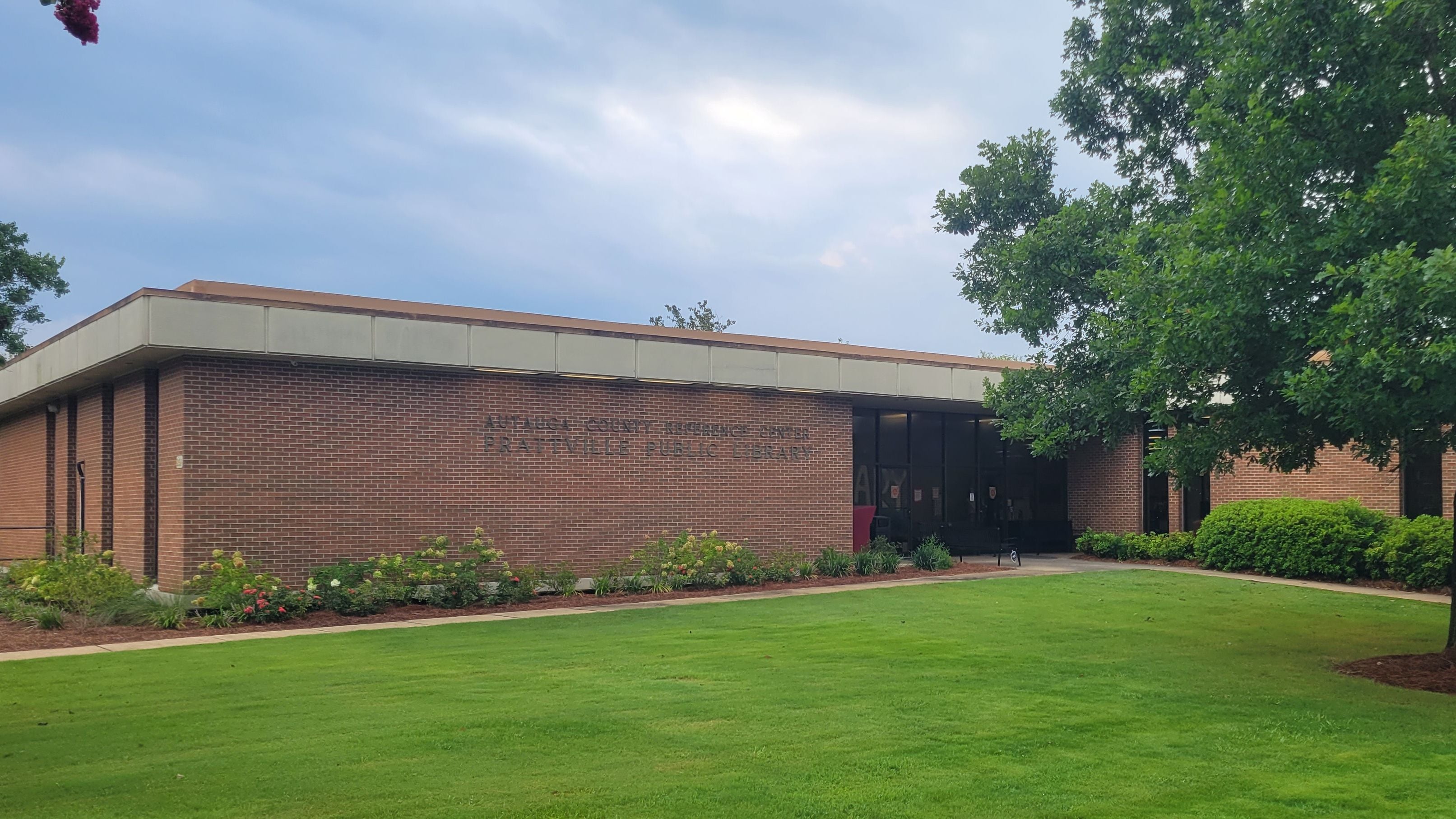
The Autauga-Prattville Public Library was hit with dozens of book challenges in 2023. Provided by Autauga-Prattville Public Library
“I think that what Clean Up Alabama has done is they have made people afraid of something that is not even happening,” said Prattville resident Angie Hayden, who helped create the group Read Freely Alabama to combat book challenges.
“And once you convince people that something evil is coming for their children, you can pretty much get away with whatever you want to do,” Hayden said. “That’s kind of been their entire tactic is to get people so afraid that these books are coming for their children, that there’s some sort of agenda coming for their children when really the library is just a place for all sorts of viewpoints that represent all sorts of people.”
The situation reached a critical point in Prattville when the Autauga County Commission appointed a library board member without the board’s approval. Most board members resigned in protest last November. The new board voted in February to ban the purchase or acquisition of any LGBTQ books or books with “sexual content” for readers 17 and younger and ordered librarians to put red warning stickers on adult books with sexual content.
Library critics, without evidence, have even suggested that librarians are distributing sex toys and pornographic magazines to children. At Clean Up Alabama’s “sexualization of children” forum, Dawson said he’d prefer Playboy magazines over current library offerings. Dawson did not respond to requests for comment from AL.com.
“That’s one of the more absurd arguments that have been made about us,” said Andrew Foster, the director of the Autauga-Prattville Library. He said instead of people coming to librarians or reading books for themselves, they’re relying on secondary and even tertiary sources.
In Foley, a city of about 20,000 people near the Gulf Coast, Stephanie Williams said she searched “LGBTQ” in the local library’s online catalog. She raised challenges to 15 books. Two of those books, “This Book Is Gay” and “Who Are You? The Kids Guide to Gender Identity,” are on the Clean Up Alabama list.
She protested the books in a letter to the mayor, city council members, and the library director. She also linked to a 111-page document with books deemed inappropriate by Moms For Liberty.
According to David Thompson, executive director of leisure services, the Foley library’s reconsideration committee moved nine of those books from the library’s young adult section to the adult section. The library director resigned to work in a library in Wyoming.
Williams said that she’s been able to draw attention to the problem of “obscenity, child pornography, sexually explicit, violent and other troubling and age-inappropriate materials being displayed and made accessible to minors in public and school libraries in Alabama.”
“The more exposure this issue garners, the more support the various groups and individuals like myself enjoy from concerned neighbors right up to persons at top levels of government,” Williams wrote in an email to AL.com. “So, yes, we are making a difference in restoring the vestiges of a civil, refined, and ethical culture.”

Several residents complained about a Pride display in the North Shelby Library June 2023. However, the majority of comments were supportive of the special section. Contributed photo/ Kate Etheredge
Politics at play
The debate over library books has become so sensitive that Gov. Ivey has weighed in and threatened to cut state funding if changes weren’t made to ensure that local libraries don’t expose children to inappropriate materials.
After the governor complained last October, Nancy Pack, the director of the Alabama Public Library Service, recommended disaffiliating from the American Library Association, something Clean Up Alabama has called for since at least July 2023. At the time, Pack said she made the recommendation because the association’s library bill of rights guarantees that “a person’s right to use a library should not be denied or abridged because of origin, age, background, or views.”
“Limiting a child’s access to potentially harmful content or relocating controversial reading materials should not be misconstrued as censorship in any form,” Pack said last year in a memo to library directors across Alabama.
Pack told AL.com she recommended disaffiliation because she feared the state would cut library funding. The state attorney general has since given the green light to cut funding for libraries.
The library service board voted in January to not renew their membership to the American Library Association.
The Alabama Public Library Service board includes seven people, all appointed by the governor. And while the board does not mandate policy for Alabama’s 220 public libraries, it does distribute nearly $6 million in state funding each year.
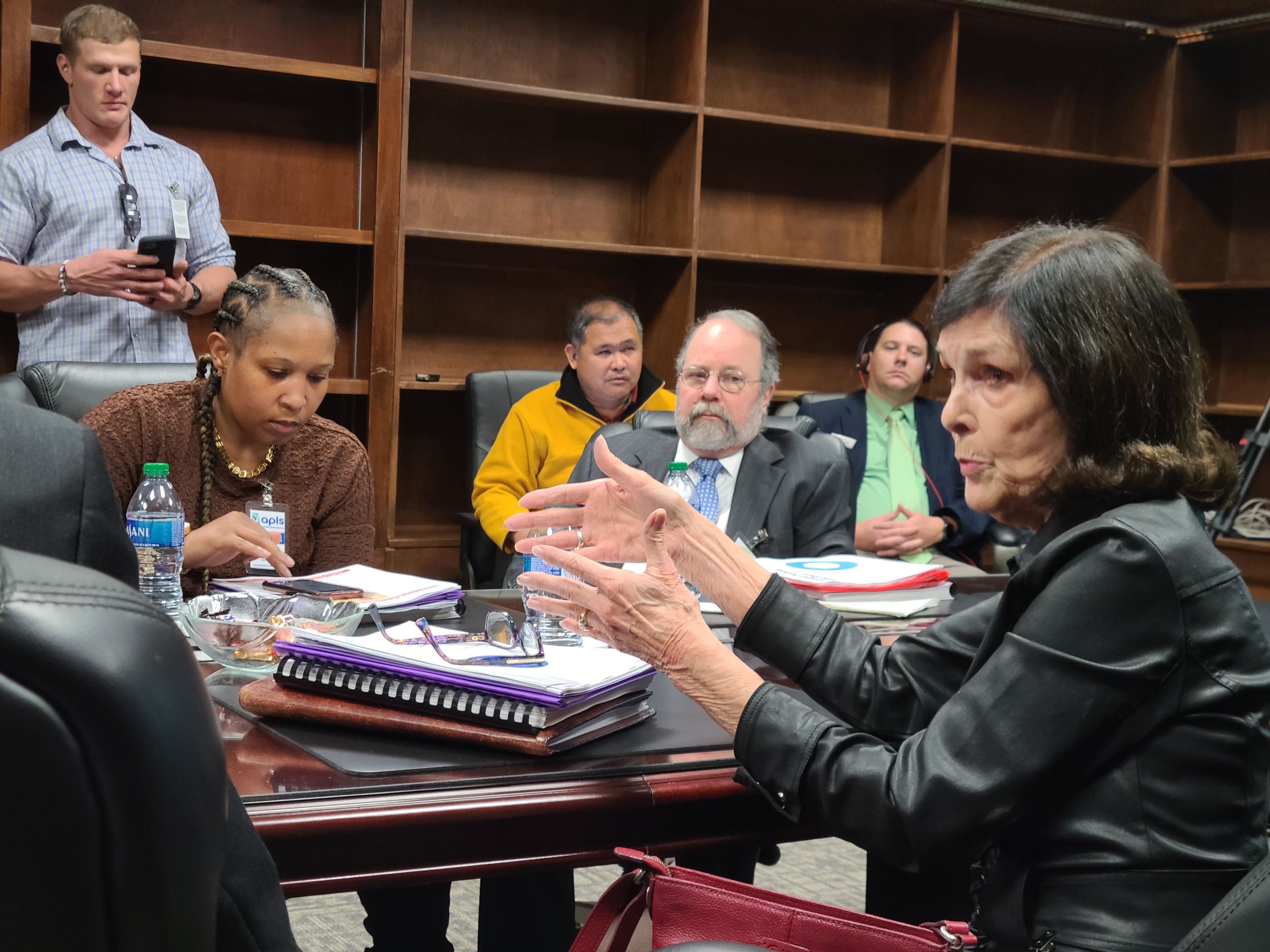
Virginia Doyle was removed as an Alabama Public Library Service board member when she complained about state funding being tied to moving inappropriate books. Williesha Morris | [email protected]
When Virginia Doyle, a member of the board, criticized the move to get the state government involved, Gov. Kay Ivey removed her from the position. Ivey appointed two new board members in early February, including one who challenged 30 LGBTQ books at the Gadsden library.
The library service board finalized a statewide database, released shortly before Christmas, for concerned Alabamians to submit complaints to librarians about books they feel are inappropriate for children. According to Pack, 82 books are on the list, including 24 from Clean Up Alabama’s list of inappropriate books.
In Cullman County, commissioner Garry Marchman publicly stated that he wanted to remove all LGBTQ books from the library. In an interview with AL.com, Marchman said he’s received calls of support from constituents, who “have the same feeling I do.”
Every member of the Cullman County commission signed the “Petition to Stop the Sexualization of Children” set up by Clean Up Alabama to remove books they deem inappropriate.
“Public libraries across Alabama are giving children access to pornography and other sexual content,” the petition states. “Join the fight to put an end to this nonsense by signing the petition today! Once you’ve signed the petition, please consider making a generous contribution to help fund the fight!”
After Marchman stated his views, Josie Harrington, the library’s interim director, resigned. In an interview last year, Harrington said she’d received support, not backlash from library patrons.
“I’ve received very little actual criticism about keeping books where they are, and not censoring anything,” Harrington said. “The closest thing to criticism we’ve received is offering more assistance to parents to try and guide their children to reading books they find appropriate.”
In Mt. Laurel, a community in the suburbs of Birmingham, Republican state Rep. Susan DuBose said she received complaints about an LGBTQ display at the North Shelby Library during Pride Month last June. Library director Kate Etheredge said that most people who submitted comments to the library favored the collection and noted that visits increased that month.
“Just because a book is not appropriate for your family does not mean there’s not a child or a family out there that doesn’t want that kind of book,” Etheredge said.
DuBose is currently sponsoring legislation that, if approved, would make North Shelby library board members political appointees, rather than elected officials.
Two Alabama chapters of the conservative political group Moms For Liberty asked state lawmakers to withhold public funding from libraries that provide “pornographic” material for children.
Read Freely Alabama called for an investigation into whether it’s a conflict of interest for John Wahl to be the chair of the Alabama Republican Party while also serving on the state library board.
“Wahl is abusing his authority as a member of the APLS Board of Directors to enhance his political reputation as ALGOP Chair and consolidate power going into an election year,” RFA said in a statement in October. Wahl denied there was a conflict of interest and alleged there were inappropriate books in the children’s section of the Prattville library.
Clean Up Alabama invited Wahl to the “Sexualization of Children” forum as a library board member. After Read Freely released its statement, Wahl chose not to attend the Clean Up Alabama forum. The other state library board members decided that having the state Republican party leader on the board was not a conflict of interest.
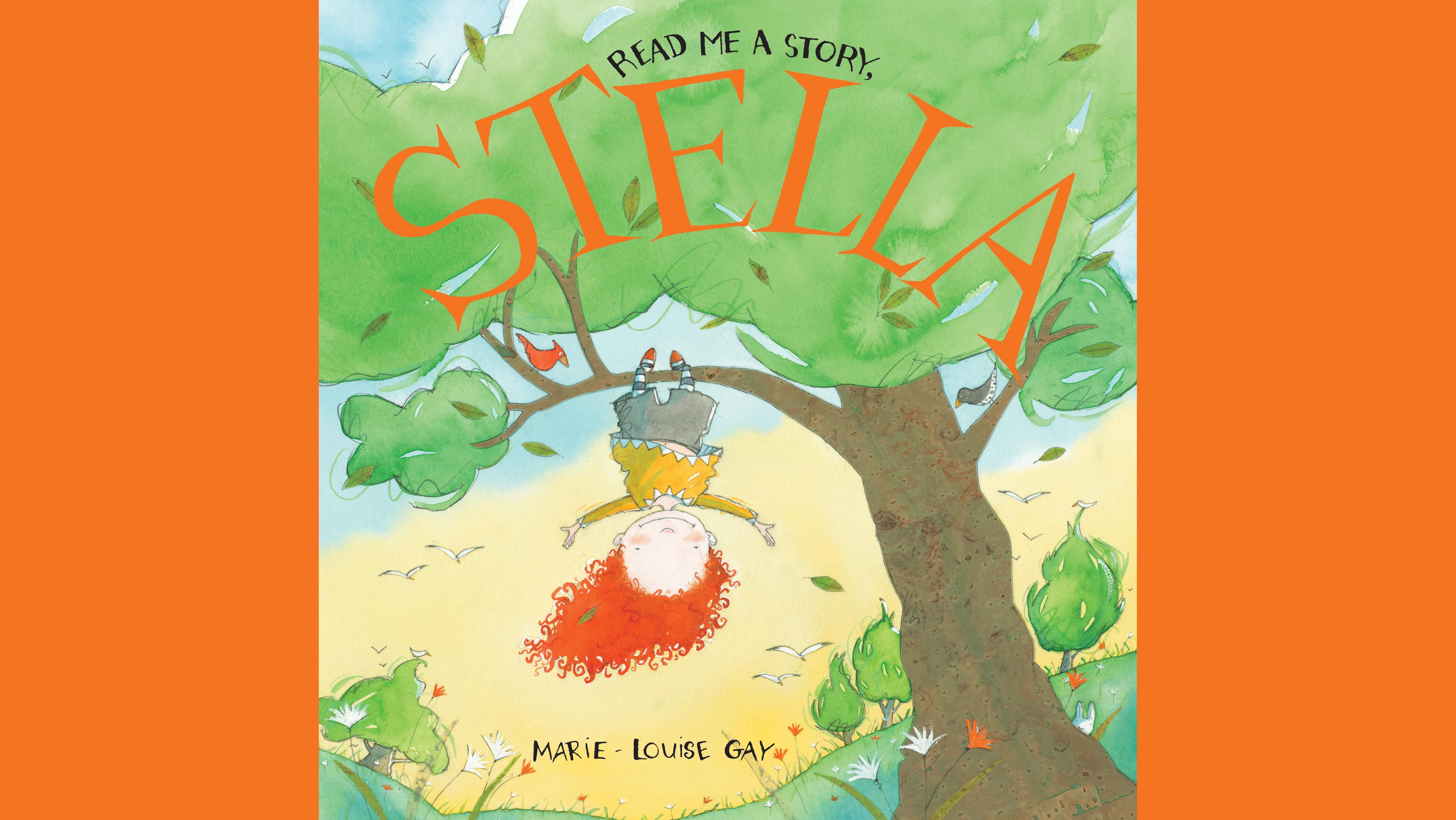
“Read Me A Story, Stella” was added to a book list of potentially sexually explicit books at the Huntsville-Madison County Public Library because the author’s last name is Gay. Provided by Groundwood Books
‘Censorship’
Nationwide, many book challenges focused on school libraries. In Alabama, state education superintendent Eric Mackey mandated in October that every school library have a written reconsideration policy in place in case the public wants to challenge a book.
School administrators in Orange Beach started reviewing nine books in December, most with LGBTQ characters, to see if they should remain in the library.
But so far, the debate in Alabama has centered around public libraries.
In north Alabama, one library became a national punchline as they tried to get ahead of the controversy. The Huntsville-Madison County Public Library used Clean Up Alabama’s list as a basis for a mandatory review to get ahead of potential book challenges. Director Cindy Hewitt said she wanted to identify books that discussed sexuality, gender, and dating.
When searching their catalogs, branch managers included keywords like lesbian and gay and came up with a list of 233 potentially inappropriate books.
“Read Me a Story, Stella,” the children’s book by Canadian author Marie-Louise Gay, found its way onto that list because of the author’s last name, sparking national headlines and jokes on late-night talk shows. Months later, LeVar Burton, the longtime Reading Rainbow host, mentioned the snafu in “Banned Book Rainbow,” a parody sketch on Jimmy Kimmel Live.
“This proves, as always, that censorship is never about limiting access to this book or that one. It is about sending the message to children that certain ideas — or even certain people — are not worthy of discussion or acknowledgement or consideration,” said Karen Li, publisher at Groundwood Books, which publishes Gay’s books.
Though the book was not removed from the library, multiple other books from the children’s and young adult sections were moved to the adult section without input from the library board or the public.
After public backlash, librarians in Huntsville returned the books to their original sections.
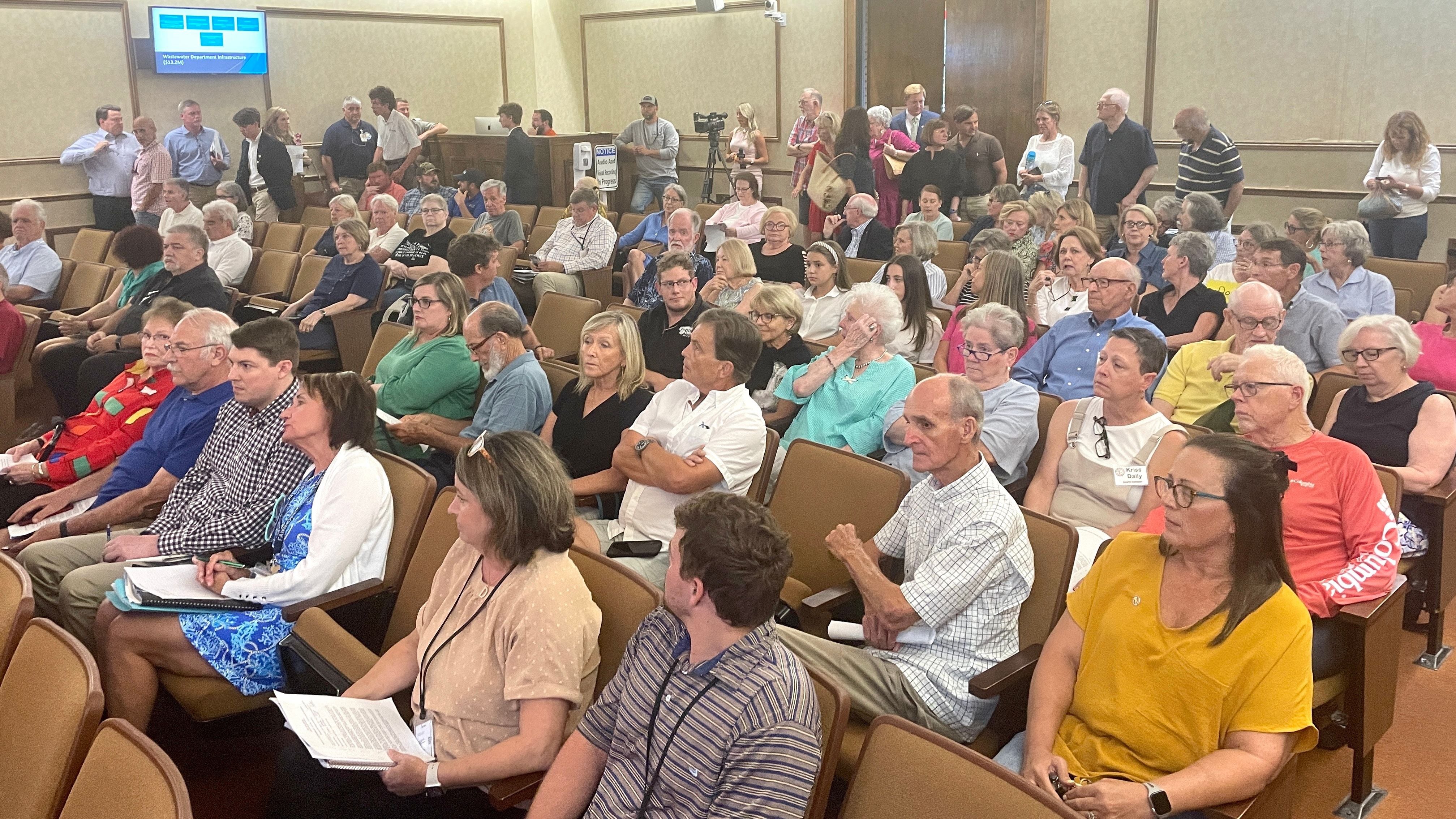
Members of the community find their seats before the Fairhope City Council meeting on Sept. 11, 2023. Although it was not an agenda topic, nearly every attendee came to either advocate for or against removing books from the library. Mary Helene Hall | [email protected]
In Foley, not only did library officials move nine young adult books with LGBTQ themes to adult sections, they removed one book, Maia Kobabe’s “Gender Queer,” from the library altogether, even though it was in the adult section.
“I strongly disagree with the decision to remove any book from a library because it offends the sensibilities of one person,” Kobabe said in a statement. “A book that might seem pointless to one reader might be life-saving to another. As a community is full of diverse individuals, so the library should be a place offering a wide range of different topics, opinions, information, and stories. Removing a book because its themes offend one reader is censorship.”
After getting challenges to about 20 books, the library board in Dothan enacted a new policy mandating that librarians keep books showing a visual depiction of sexual activity in a limited access section behind the circulation desk for adults 19 and older. For now, the only book that fits this description, according to a library employee, is “Gender Queer,” a book that was already shelved in the adult section, not in the library’s areas for kids.
“This proves, as always, that censorship is never about limiting access to this book or that one. It is about sending the message to children that certain ideas — or even certain people — are not worthy of discussion or acknowledgement or consideration.”
Karen Li, publisher at Groundwood Books
But in many communities across the state, librarians and community members stood their ground.
When 55 books were challenged in Fairhope, the community packed public meetings in protest.
“This is a form of censorship,” said library board chair Anne Johnson during one crowded city council meeting in September. “There are young people in our community who may be struggling with their identity, with the teen years, who may not have a support system at home, or at school or at their church, who may be being bullied or even suicidal. And we may have books in the library that can help get them through a difficult period. No one person or group has the right to dictate what books and information others have access to.”
In Foley, Williams said she will continue to lobby for libraries to “clean up their book stacks for minors and to continually monitor catalogs to identify materials that may fit the criteria for obscenity and child pornography and other objectionable factors.”
While being called pedophiles or groomers in emails and on social media is disheartening, the day-to-day work of librarians continues to be a form of resistance, according to Alyx Kim-Yohn, circulation manager at the Madison branch of the Huntsville-Madison County Public Library.
“The folks who came up to my face were the ones who said, ‘We love the library. Thank you for what you’re doing. This is wild what you’re dealing with. Please keep doing what you’re doing,’” Kim-Yohn said. “Those are the people who are physically coming into the building and looking me in the eyes as a human being and saying these things to me.”
